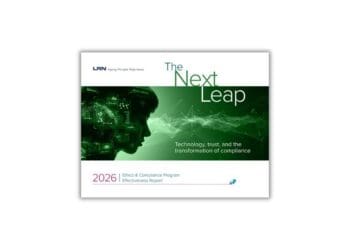The conventional hiring funnel often eliminates neurodivergent candidates before their exceptional talents can be recognized. Leanne Maskell maps the common obstacles from vague job descriptions to psychometric tests based on neurotypical norms.
In today’s competitive landscape, organizations thrive on innovation and diverse perspectives. However, many traditional hiring practices unintentionally exclude neurodivergent candidates — individuals with ADHD, autism, dyslexia and other neurotypes — despite their immense potential to drive creativity, problem-solving and business success. If your recruitment process isn’t designed with neurodiversity in mind, you may be filtering out top talent without even realizing it.
Hidden barriers
Neurodivergent individuals bring unique skills, but many struggle with traditional hiring processes that often value conformity over capability, such as:
Generic job descriptions
Ambiguous, long or overly broad job descriptions can discourage neurodivergent applicants, who may require explicit, structured expectations. Vague language like “dynamic team player” can feel confusing to those who may interpret this literally, for example. Similarly, abbreviations and industry jargon may disadvantage people unfamiliar with these terms, despite them having excellent transferable abilities. Keeping job descriptions concise, focusing on skills and being upfront about factors like salary levels the playing field for everybody.
Rigid screening criteria
Traditional screening methods often favor applicants with conventional, linear career paths and a certain number of years’ prescribed experience. This can disadvantage neurodivergent people who may have had squiggly careers, providing them with a highly valuable and unique set of skills. Instead of relying on check boxes, look to understand the individual holistically.
Application processes
Job applications requiring excessive information, research and administrative effort can pose significant barriers. For example, systems that require an individual to manually type out their CV can feel frustrating, which may be exacerbated for people who struggle with repetitive tasks, such as those with ADHD. Instead of requiring people to jump through bureaucratic hoops, make application processes accessible for all to attract the best talent. This can also significantly ease disappointment for applicants who have put significant effort into their application only to be rejected (or ignored altogether).
Psychometric tests
Psychometric tests like verbal reasoning assessments are inherently based on neurotypical norms and ways of thinking, excluding those who think differently. Providing alternatives, or explicitly stating that these are not required for neurodivergent applicants, can help manage anxiety.
Interview processes
Multiple-stage interview processes can pose significant barriers for neurodivergent people, who may find such experiences intensely stressful. Offering interviews in a range of formats (e.g. by phone) can be extremely helpful. Traditional, unstructured interviews that focus on eye contact or social fluidity, rather than job-relevant skills can prevent companies from assessing a candidate’s true potential.
Time-pressured assessments
Timed cognitive tests, phone screenings and rapid problem-solving exercises can disadvantage those who process information differently or thrive in deep focus rather than on the spot thinking. These are also unlikely to mirror the reality of a job role; it’s not the Hunger Games, after all.
Lack of information
The uncertainty surrounding recruitment processes may be difficult for neurodivergent individuals. Giving applicants and candidates as much information as possible can help provide clear expectations, such as time frames for decisions. Although many job applications allow applicants to request reasonable adjustments, this may be overwhelming for an individual who is uncertain of how this will be received. Providing examples of adjustments can be transformative, in addition to important information, such as that a formal medical diagnosis may not be required.
Beyond Individual Accommodations: Rethinking Workplace Inclusion
Why treating neurodiversity accommodations as universal policies rather than individual exceptions creates stronger workplaces
Read moreDetailsHow to audit your recruitment process for neurodiversity
To attract top talent and foster a neuro-inclusive hiring process, organizations can critically assess their existing practices. Below is a structured audit framework:
Step 1: Evaluate your job descriptions
- Are they written in clear, unambiguous language?
- Do they focus on essential skills rather than vague soft skills? For example, instead of excellent communication skills, use must be able to clearly document processes.
- Do they include information for neurodivergent candidates, such as examples of adjustments or relevant policies?
- Is essential information provided, such as salary and timeframes?
Step 2: Assess your screening and application process
- Are your screening tools eliminating candidates based on gaps in employment or unconventional career paths?
- What processes are in place for those who request reasonable adjustments and/or disclose neurodivergence on a job application?
- What alternative methods could be used instead of methods, such as cognitive assessments? For example, could applicants submit work samples?
- How long does the application process take? Does it include unnecessary and repetitive stages?
Step 3: Redesign your interview process
- Have you provided interview questions in advance to reduce anxiety?
- Are you evaluating candidates based on ability and relevant experience rather than social interaction skills or checkboxes?
- Have you trained hiring managers on neurodiversity awareness and inclusive interviewing techniques?
- Are interviews adaptable?
Step 4: Adjust assessment & testing procedures
- Are your assessment processes untimed and adaptable to the individual?
- Can candidates complete assessments in a distraction-free environment?
- Have you explored alternative ways to test problem-solving skills that don’t rely on high-pressure, real-time performance?
- Do the assessments correlate to the reality of the job?
Step 5: Ensure onboarding and workplace support
- Is there a structured and clear onboarding process, with step-by-step guidance?
- Does your company offer mentorship for neurodivergent employees?
- Do you have policies in place for those who disclose neurodivergence after applying for a job, such as during probation?




 Leanne Maskell is an ADDCA-qualified ADHD coach and the founder and director of coach training company ADHD Works, helping individuals and organizations like Disney, Microsoft and Yahoo harness ADHD in the workplace. Leanne worked as a legal policy adviser for The Law Society working on immigration, mental health and disability legislation for Covid-19 and Brexit policies and has delivered talks to the World Health Organization on improving global access to diagnosis and support for those with ADHD. She is the author of "ADHD: An A to Z," "The Model Manifesto" and "ADHD Works At Work."
Leanne Maskell is an ADDCA-qualified ADHD coach and the founder and director of coach training company ADHD Works, helping individuals and organizations like Disney, Microsoft and Yahoo harness ADHD in the workplace. Leanne worked as a legal policy adviser for The Law Society working on immigration, mental health and disability legislation for Covid-19 and Brexit policies and has delivered talks to the World Health Organization on improving global access to diagnosis and support for those with ADHD. She is the author of "ADHD: An A to Z," "The Model Manifesto" and "ADHD Works At Work." 







